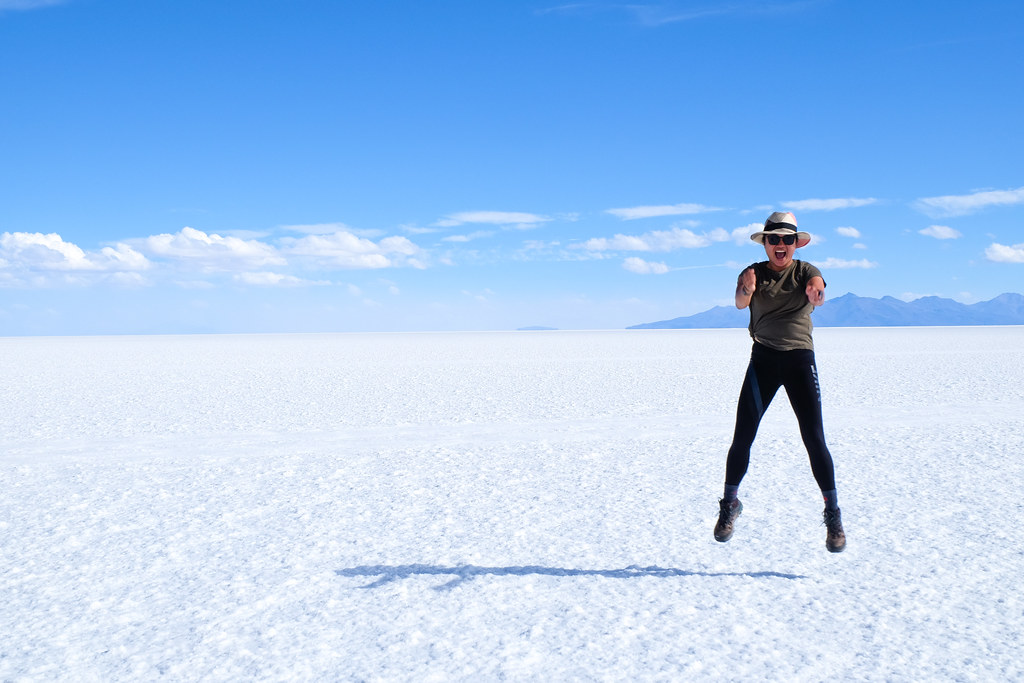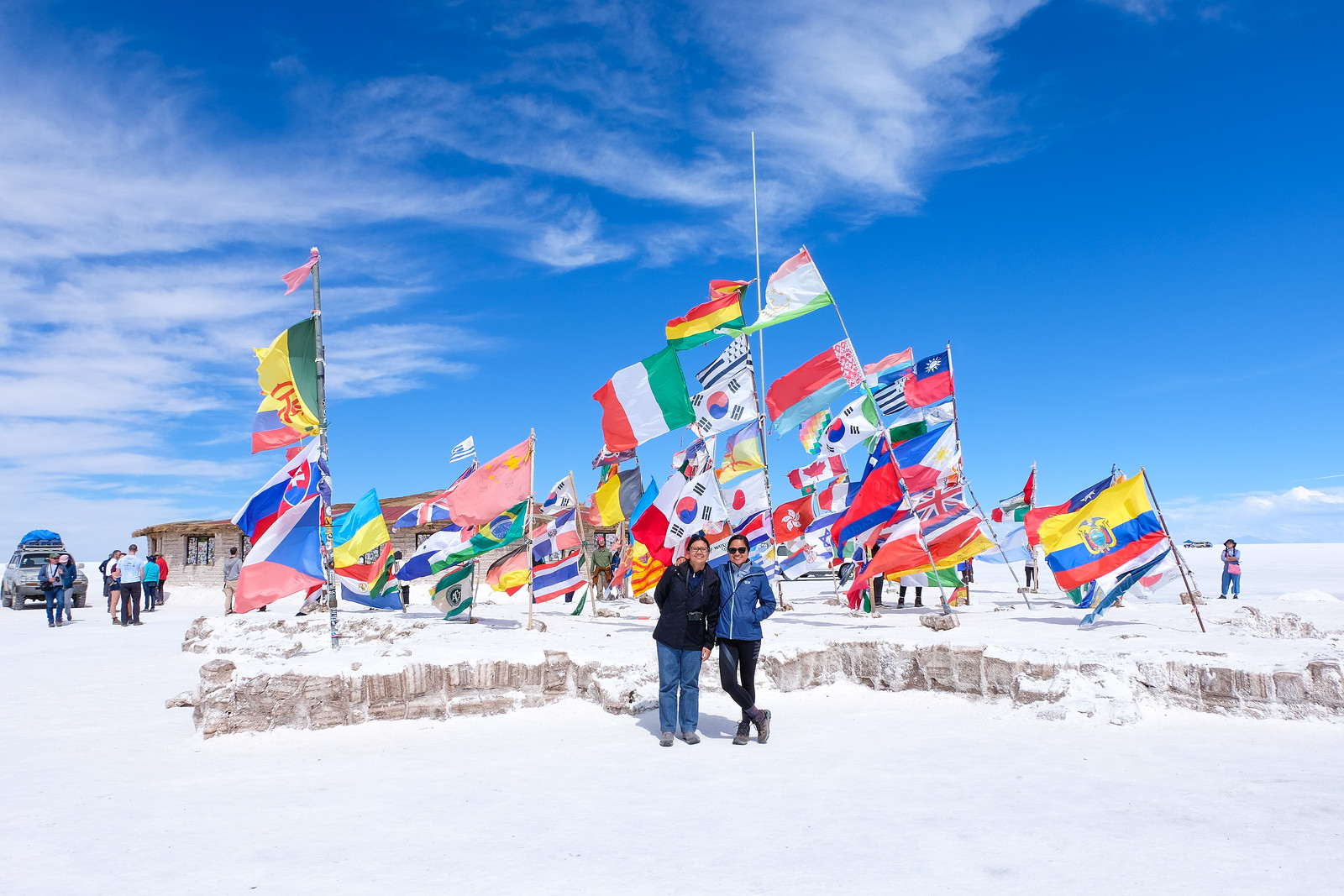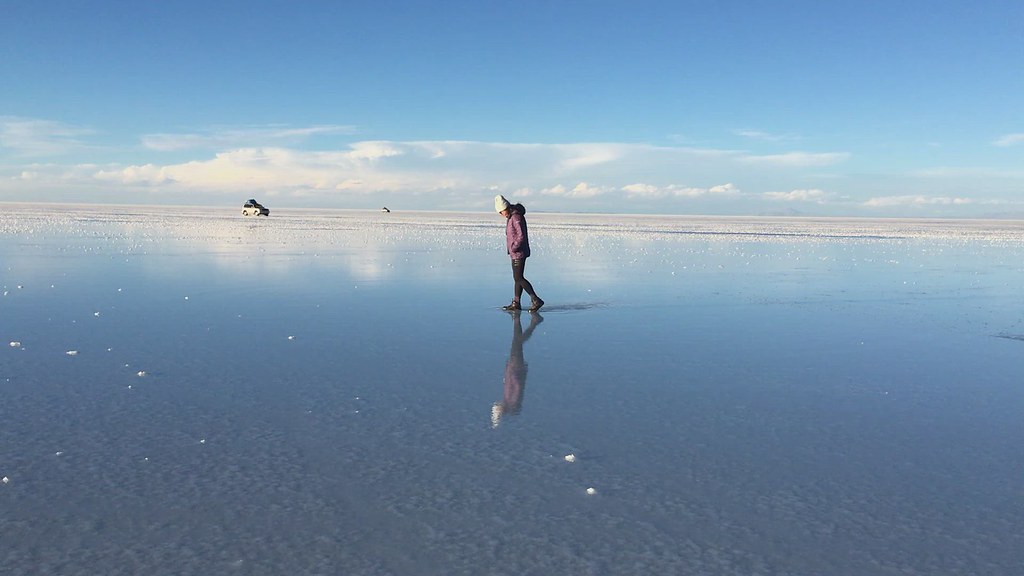Finally, we’re headed to Bolivia! My last leg in South America! The Salar de Uyuni and the Bolivian Andes. So glad my friend Kat was able to extend her trip and also go with me to Bolivia. This particular adventure has been the first inspiration for this trip. I remember my ex talking about Salar de Uyuni with such wonder in his eyes, showing me photos from his own trip. Several people I’ve met during my travels also referred to it as the highlight of their South America travels.
As soon as we arrived in La Paz, the first thing we did was to buy a roundtrip bus ticket to Uyuni. Todo Turismo had comfortable seats, however, it wasn’t the most comfortable ride as the bus heats up after a few hours particularly for seats near the windows. But it was a lot cheaper than flights, so bus it is.
We arrived in Uyuni early morning and stayed with the travel agency until departure time of 11am. Uyuni, a small desert town that really didn’t have much to offer except for a couple of good cafes and restaurants. This is why we decided to not stay in Uyuni and take the bus right after the tour.
There were 12 of us, Kat and I and 5 other couples, one guide and 3 drivers. What I liked about our group and the normal practice for Salar tours is that people switch places in the van over the 3 day tour so everyone could enjoy a window and a front seat view.
There were 12 of us, Kat and I and 5 other couples, one guide and 3 drivers. What I liked about our group and the normal practice for Salar tours is that people switch places in the van over the 3 day tour so everyone could enjoy a window and a front seat view.
SALAR DE UYUNI
First stop is Salar de Uyuni, the largest salt flat in the world and at a high altitude of almost 3,700m. It is as white as you see in the photos. Some parts have soft and fine mineral salt, while others are hard and crytallised. It is wide open space at its best! Such a cliché, but it truly was stunning and amazing.
First stop is Salar de Uyuni, the largest salt flat in the world and at a high altitude of almost 3,700m. It is as white as you see in the photos. Some parts have soft and fine mineral salt, while others are hard and crytallised. It is wide open space at its best! Such a cliché, but it truly was stunning and amazing.
Based on what I understood, Salar de Uyuni served as a basin for rain water from the Bolivian Altiplano (high plateau) over millions of years. There aren’t any rivers , so there was no way for water to go down to lower plains. Over the years, water dried up and accumulated and created the salt flats.
We also visited Isla Incahuasi, or an island in the middle of Salar de Uyuni characterized by the presence of large prehistoric cacti and fossils.
Going there end-April also meant enjoying a little bit of the ‘mirror effect’ that the Salar offers. And we did, except that it was a little bit windy, so the mirror effect had a little bit of ripples due to the wind. But it was still beautiful and colorful though. Here is where you realize how important it is to have a good driver to navigate parts of the salt flats with water because we saw a couple of cars submerged in water with passengers freezing by the road going to the inland part of the Bolivian Altiplano.
We ended the night in a privately-owned hostel by the tour agency. We were able to enjoy a hot shower too. Day one over and it definitely exceeded our expectations.















Social Icons